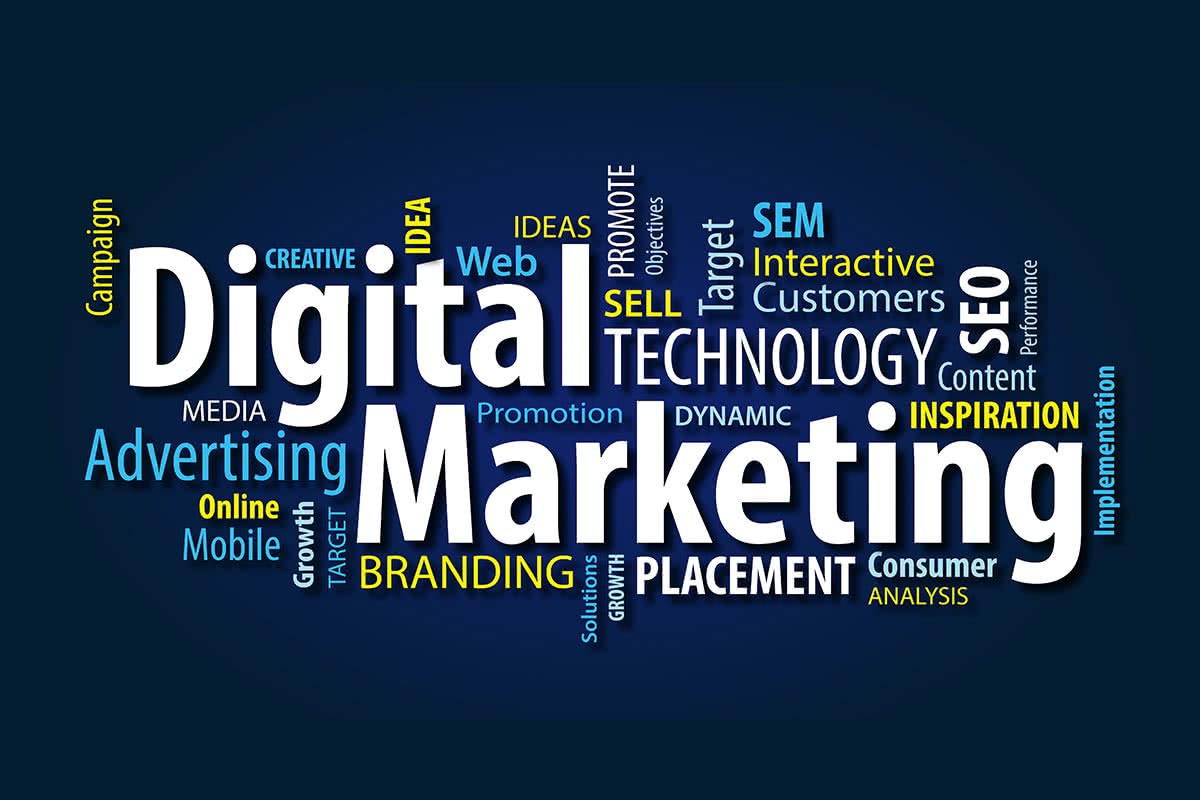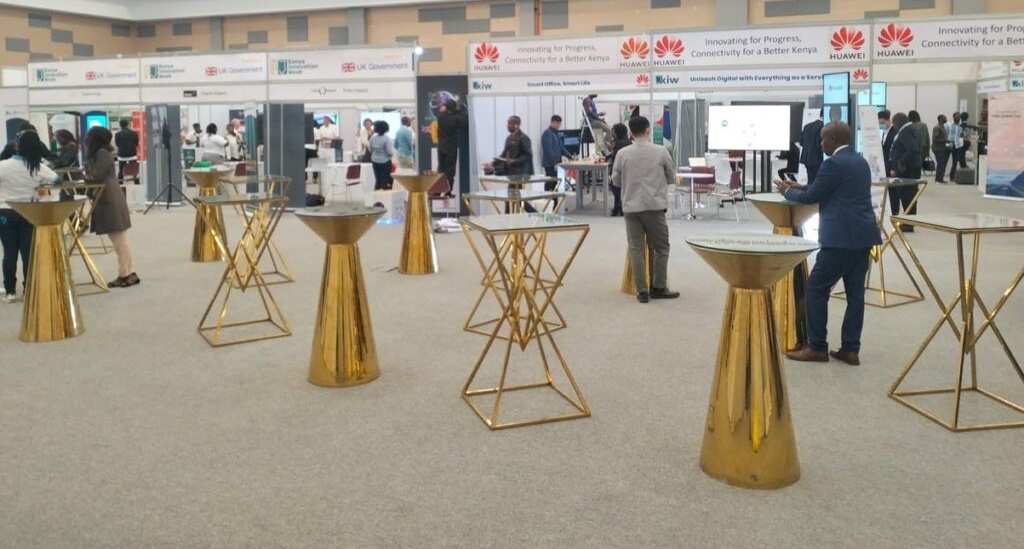Charima Marketing is a department within Charima Research Limited that undertakes field marketing and merchandizing activities to promote the buying or selling of our client’s product or service, through advertising campaigns, selling, and delivering products to consumers or other businesses. Charima marketing spread the word about your product or service, ensuring that we attract customers and generate sales for your brand.
Charima marketing seeks to get the attention of key potential audiences who could be consumers and prospective consumers through advertising campaign. Our promotions target a certain critical audiences using catchy phrases or slogans, memorable packaging or graphic designs and overall media exposure for a long-lasting impact on your brand.
Charima marketing activities create effective brand relationships with and satisfying customers, ensuring that we use the most efficient way to reach as many of the customers as possible and as many times as possible.

Our Field Marketing and Merchandizing Services:
- Field marketing
- Brand and market activations
- Retail sales management
- Digital activations
- Trade marketing
- Strategic brand management
Field Marketing
Charima marketing through our field marketing team ensures that brands get their products in front of consumers since shoppers buy what they see out in the field at retail locations, events, college campuses, or in public locations carrying out effective promotions, demos, and direct sales. The objectives of field marketing vary by company and campaign, but some common goals include brand awareness, increased sales at targeted locations, and increased engagement with local purchasing communities.
Charima marketing in conjunction with our clients develop and execute all field marketing campaigns. Charima marketing teams are well experienced and highly trained. We have teams divided according to their operating areas into territories, with regional managers overseeing large territories and assigning team leaders for each smaller locale. While territory management is more important for companies that distribute nationwide, even for the smaller brands we often manage their promotion schedules by location.

Field Marketing Manager
Our field marketing managers are responsible for hiring, training, and directing our field teams, as well as ensuring field marketing campaigns achieve the intended goals objectively. Our field marketing managers in conjunction with our senior marketing executives work together to determine what the objectives will be. Our field marketing managers design specific campaigns and ensure they are executed as accurately, effectively, efficiently and thoroughly as possible. Field marketing managers are also responsible for reporting on these initiatives to the director.
Field Marketing Representative
Our field marketing reps conduct product demos, retail audits or sell products directly to customers at shows and events. Their primary objective is to drive brand awareness on-site through face-to-face interaction with consumers. Our field marketers also act as links between buyers and sellers, providing cherished info about products and services to consumers.
Brand Ambassador or Brand Representative
Our brand ambassadors promote, endorse, or otherwise represent a brand or product. For the large companies we can recruit celebrities to serve as the face of their product to their personal following, but for SME corporations, we spread brand awareness with more grassroots brand ambassador programs.
Street Team Reps
Our street team agents are a brand’s vocal champions, both during official events and through their own social promotions efforts which we also follow for supervision and check-ups purpose. During events and guerilla marketing campaigns, our street teams serve as boots on the ground handing out fliers, stickers or products to crowds.
Field Marketing parting short!
For consumer goods corporates, marketing is all about bringing a brand and its consumer base closer together. That objective spans from a product’s initial branding to brand awareness crusades, and eventually to sales-focused promotions. Field marketing on its own is not a comprehensive marketing strategy, brands must at least perform basic market research, but it is a crucial part of any marketing campaign that interfaces directly with consumers.
Field marketing is not only treasured as a companion to traditional marketing initiatives, but it also offers companies something distinctive that is called agility. Planning and executing broad marketing campaigns takes time. But after months of planning, what happens if something goes wrong or there’s an opportunity to improve?
Traditionally, those chances were lost as companies had to wait until a campaign is finished to analyze the results. When executed correctly, field marketing breaks that delay, allowing companies to collect and analyze data about their campaigns faster, making for more agile and effective marketing.
Retail Sales Management
Charima retail marketing brings the product directly to customers in a retail store. We plan, carry out promotion, and presentation of a product. Having a unique commodity is only the first step — addition components of retail marketing include packaging, competitive pricing, and sales campaigns.
Charima marketing understands that four primary principles of retail marketing are product, price, place, and promotion.
Product: Before marketing, you have to have a product to market. This product can be physical or intangible. Then classify whatever you’re offering into a neat unit through packaging. You can’t have a product without packaging. According to Forbes, a staggering 95 percent of new products fail. While Forbes chalks it up to a lack of quality and deliverance, Inc. offers up another insidious cause of product failure: bad packing.

When packaging;
- Know your demographic target
- Style economical packaging to look elegant and personalized
- Make the packaging part of the experience
- Consider biodegradable options
Price: There are a various different elements to consider, such as overhead expenses, competitors, profit, demand, product positioning, and market conditions. In order to optimize sales, you must find your product’s pricing sweet-spot.
Here are two of the most common pricing methods we see:
Cost-plus pricing: involves determining your break-even price for a product, and then adding on a markup for each unit based on how much profit you want to make. This pricing method is often used for things uninfluenced by competition or market changes, such as commodities and services. Since it doesn’t take into account a product’s value or that of competing products, it’s not a great strategy for retail items.
Value-based pricing: involves estimating how much your product is worth to customers. This strategy appeals to your customers’ emotions, which can be especially high when it comes to fashion and niche markets. It’s most fitting for products with varying levels of value and demand.
Place: You can have the best creation in the world, but if it’s out of your consumers’ reach, you’re out of providence. It is that simple.
Promotion: Promotion is often the point where retail marketing and field marketing intercept. It’s all about communicating with your consumers and igniting their interest in your product.
Promotion can be anything from traditional advertising to influencer marketing. Promotion requires a deep understanding of your target customers and how best to reach them. This value is perhaps the most elusive of them all, as brands continue to one-up each other when it comes to creative promotion. However, a few of the standby promotion tactics include face-to-face marketing, in-store merchandising, and sales promotions.
Carrying out the brand or market activation
- Experiential / Experimental marketing: The superlative way to activate your brand in people’s thoughts is by allowing them to experience it directly.
- Sampling campaigns: Giving out free samples of a new product can be a great way to introduce people to your brand and get them talking, but make it timely and creative to ensure the best result.
- In-store brand activation: In-store promotions or events create an experiential element whereby customers can touch and interact with your brand direct.
Combine them all: As I mentioned earlier, the marketing world has more channels than ever and it is important to understand how to link up the brand activation experience across the various customer touch points. The first thing to mention is social. If you are running an experiential campaign, for example, it is vital that you coordinate social media activity to ensure the campaign gets the exposure it deserves.
There is no point putting a huge amount of time, effort and resource into something if you’re not going to shout about it at the same time. PR is another important part of the process. If you’re handing out free samples or doing experiential marketing then it’s likely the press will be interested in running a story about it. So make sure you have a strong PR strategy in place so that the right publications know about your campaign at the right time to ensure maximum coverage.
The result: As with all types of experiential marketing, brand activation should not always be measured simply in terms of additional sales. Of course the end goal in everything marketers do is to increase revenue, but more directly a brand activation campaign is about raising awareness and opening a two-way dialogue with potential customers about your brand. It is about creating an emotional connection between them and your brand so that it sticks in their mind and they are more likely to engage with it and become long-term customers.
Conclusion: Emotional reaction through interaction: We often converse about the need to provoke an emotion reaction through contents, and with market activation it is principally vital. Frequently it is the first experience somebody will have with your brand, therefore it’s important to make the right kind of impact so that your brand sticks firmly in their mind for a significant period of time. Whether you make people laugh, cry, feel anger or excitement (this will all depend on your product and audience), you must create some kind of emotional connection or it is unlikely people will recall the experience or your brand.

Brand and Market activations
Market activations is the process of making your brand known to people, increasing awareness and engagement through some kind of brand experience and market stimulations. Think about when you first start a business. Nobody knows who you are and they aren’t aware of your brand. Your brand is effectively lifeless, dead and it needs to be ‘activated’ before it can be of any use. Another good example is if a corporate wants to rebrand itself it can’t just make a few changes and hope people notice. It needs to go through the process of switching people’s minds over to the new brand and making them cognizant of it. If your brand is a cold and lifeless lump of coal in the dark, market activation is the firelighter that makes it burn hot and bright for all to see.
Digital Activations
In this modern age with digital phenomenon, we go beyond brand awareness right into consumer engagement through up close and candid interaction with your target audience.
Social media and video interaction
In today’s broad market, brands are consistently exploring means to evolve through the way they engage audiences on their digital platforms. Our digital influencer activation enables you to leverage the persuasive power of these digital influencers to increase your brand awareness.
Digital video is anticipated to develop to be number one source of entertainment by the end of the decade. If the future of video is online, the immersive medium will be driven by creativity and innovation.
Charima marketing enable you to reach new audiences by creating compelling experiences across any platform and integrating both premium and other content, helping you to stay at the forefront even on the digital revolution.


Trade Marketing
At Charima marketing through our trade marketing teams, we seek to increase the demand at wholesaler, retailer, and distributor. Our trade marketing team ensures that wholesalers/retailers/distributors promotes your company’s product against competitors’, by whatever possible including ensuring that sellers are offering better discounts against your competitors or through offering tangible or intangible benefits to retailers such as commissions made for sales.
In addition, we carry out some activities to increase demand at shopper’s level like setting the right planogram, price notices, use of point of purchase materials rather promotional materials noting things like, regular presence of commodity, fullness of trade self, active customer base, right representation planograms, accommodation in the POS, additional space for products of company, lack of OOS, low level of commodity rests, knowledge about product in sales outlets.
.Charima trade marketing team, market your products through the value chain and at the point of sale in the stores, creating the demand for your products across the channel before it reaches the customer.
At Charima marketing through our trade marketing teams, we seek to increase the demand at wholesaler, retailer, and distributor. Our trade marketing team ensures that wholesalers/retailers/distributors promotes your company’s product against competitors’, by whatever possible including ensuring that sellers are offering better discounts against your competitors or through offering tangible or intangible benefits to retailers such as commissions made for sales.
In addition, we carry out some activities to increase demand at shopper’s level like setting the right planogram, price notices, use of point of purchase materials rather promotional materials noting things like, regular presence of commodity, fullness of trade self, active customer base, right representation planograms, accommodation in the POS, additional space for products of company, lack of OOS, low level of commodity rests, knowledge about product in sales outlets.
.Charima trade marketing team, market your products through the value chain and at the point of sale in the stores, creating the demand for your products across the channel before it reaches the customer.
Strategic Brand Management
Charima marketing becomes effective part and partial for the development of your brand perception in the market, constructing a positive relationship with the target market.
Remember that a brand should distinguish itself in the market to make its products viable. The top brands use strategic brand management to enhance their brand. Brand value dictates purchasing decisions in the current market trade. Today, a wide range of products and services are accessible to everyone, and that’s why brand management is a top development field. Brand management builds devoted customers by utilizing brand affirmations with images or key messaging.

Unique Selling Proposition (USP)
Your unique selling proposition (USP) sets you apart from competitors. To create your unique selling proposition, you must understand where your product and company fit into the market. What makes the product different from its competition? Is it more durable or cost-effective? And how is your company different? Is it more innovative or stable? Whatever it is, define it. And write it down. For example: “Our company is the most creative and the product is the most stylish”.
Leverage on your USP by turning it into attractive key message. Use this as the backbone of your marketing activities; you’ll be surprised positive impact.
Market your brand by choosing the appropriate medium and means. If your brand is fresh and innovative, promote your brand through content marketing. Become a high-tech inventive thought-trailblazer and use your brand as the calling card in your key messaging.
Tactful Influencers
The best way to market your brand is have someone else do it. This is called the third-person effect someone who doesn’t have a vested interest is more trustworthy and believable and that is why Charima marketing is here for you.
Establishing and maintaining a relationship with an influencer like Charima marketing is the best idea and the best forward footstep with your brand, and we guarantee you a beneficial partnership. Engagement is key here. Like in any other relationship, we communicate through various avenues available for communication like social media etc. and respecting impartiality.
Brand Development
It’s important to collaboratively develop your brand from the inside. Get buy-in from other divisions and external stakeholders. This helps you integrate other opinions into the brand, which you may have snubbed.
All staffs are brand ambassadors. Get buy-in from the entire organization to communicate your brand. This internal embracing is essential for sustaining brand consistency. Every department should represent the brand in all communication with customers, partners, suppliers and everyone else.
Folks come and go, processes and products change, but your brand is like a rock. Steady brand development is important, but the primary brand never changes. Facilitate brand evolution by managing the visual fundamentals that represent the brand. Color systems and logos should be stored in your brand scheme to transform the organization’s brand.







